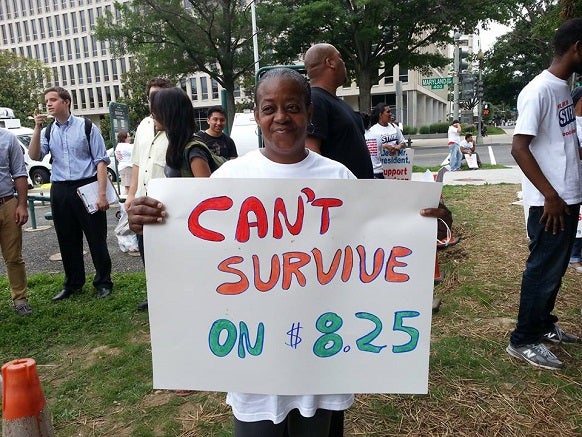Uncategorized
Study: Low Wages Lead to More Suicides

America has a significant income inequality problem. And tragically, for some, it is too much to take.
A new report published in the American Journal of Preventive Medicine found that a contributing factor for the increase of death by suicide in this country over the last two decades is the increasingly widening gap in wages that is leaving far too many struggling to support themselves and their families.
The study, conducted by the University of North Carolina, noted that financial stress is a known contributing factor in suicide attempts. But there was little previous research on the effect of economic policies that could alleviate financial stress on suicide rates.
Looking at the relationship between state minimum wages and suicide rates in all 50 states between 2006 and 2016, the UNC researchers found that a one-dollar increase in the real minimum wage was associated on average with a 1.9 percent decrease in the annual state suicide rate in adjusted analyses. That would have resulted in almost 8,000 fewer suicides nationally during that period.
“Increases in real minimum wages have been associated with slower growth in state suicide rates in recent years. Increasing the minimum wage could represent a strategy for addressing increases in suicide rates,” the report states.
“Minimum wage laws in the U.S. may be particularly important for providing financial security given the fewer labor protections and higher volatility U.S. workers experience compared with workers in other high-income countries,” it added.
It should come as no surprise that wage growth for low-wage workers has been the strongest in states that have hiked the minimum wage. As the Economic Policy Institute noted, 13 states and the District of Columbia raised their wage floors last year, and the rate increased in eight others that have indexed it to inflation.
Wage growth for those earning a salary at the 10th percentile in a state with at least one minimum wage increase between 2013 and 2018 happened 50 percent faster than in states without such a hike. Women were the most positively affected by these changes.
But while some states and cities have gone as far as to implement a $15 an hour minimum wage, too many workers are still forced to try and get by on the federal minimum wage of $7.25. Increasing the federal standard, according to EPI, would disproportionately benefit African American workers because they are more likely to be low-wage workers living in states or jurisdictions that earn the federal rate. A minimum raise increase to $15 by 2024 would result in a pay hike for 38.1 percent of all black workers.
Government has a responsibility to protect the safety and well-being of its constituents. It starts with paying a fair wage for a day’s pay.